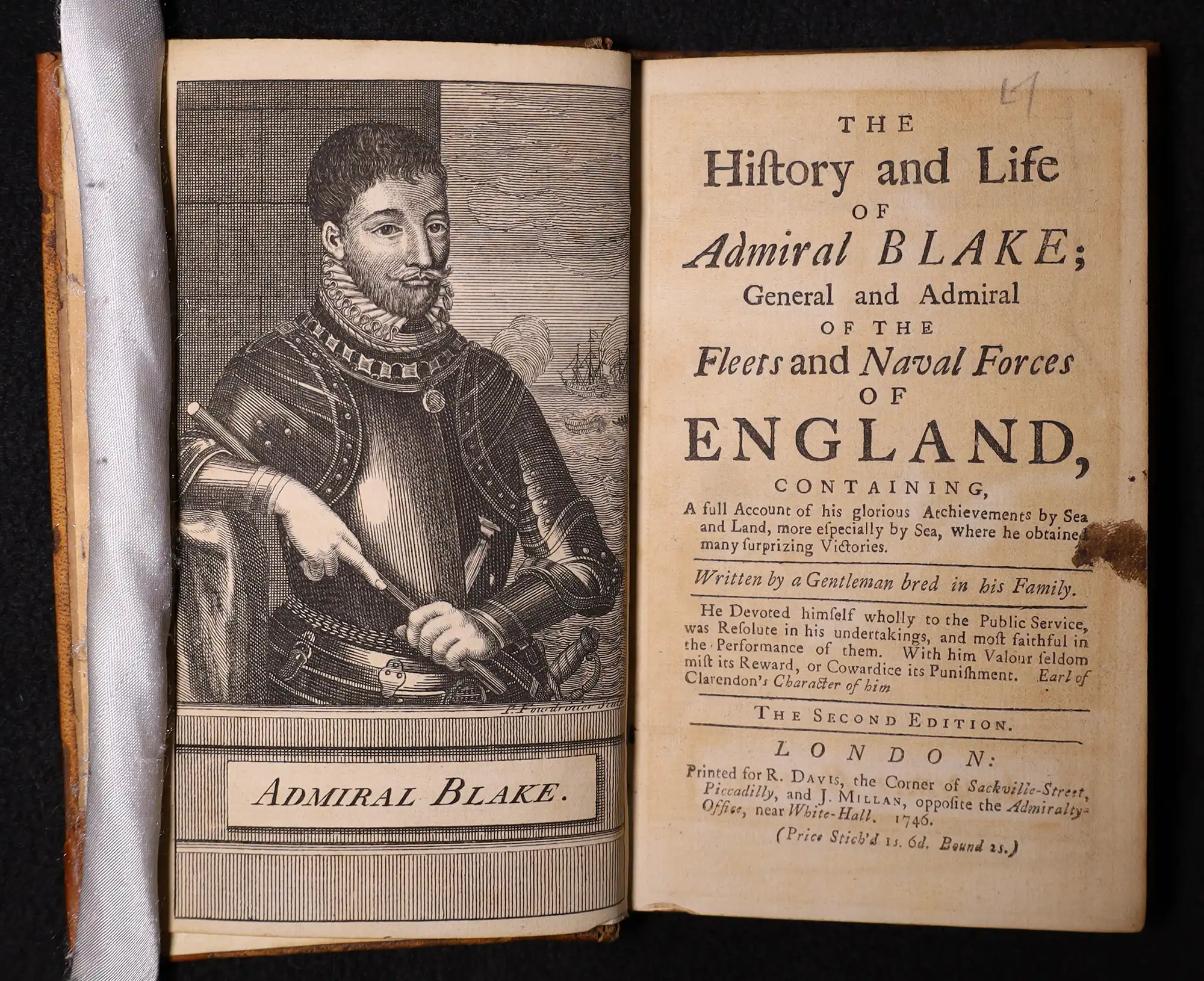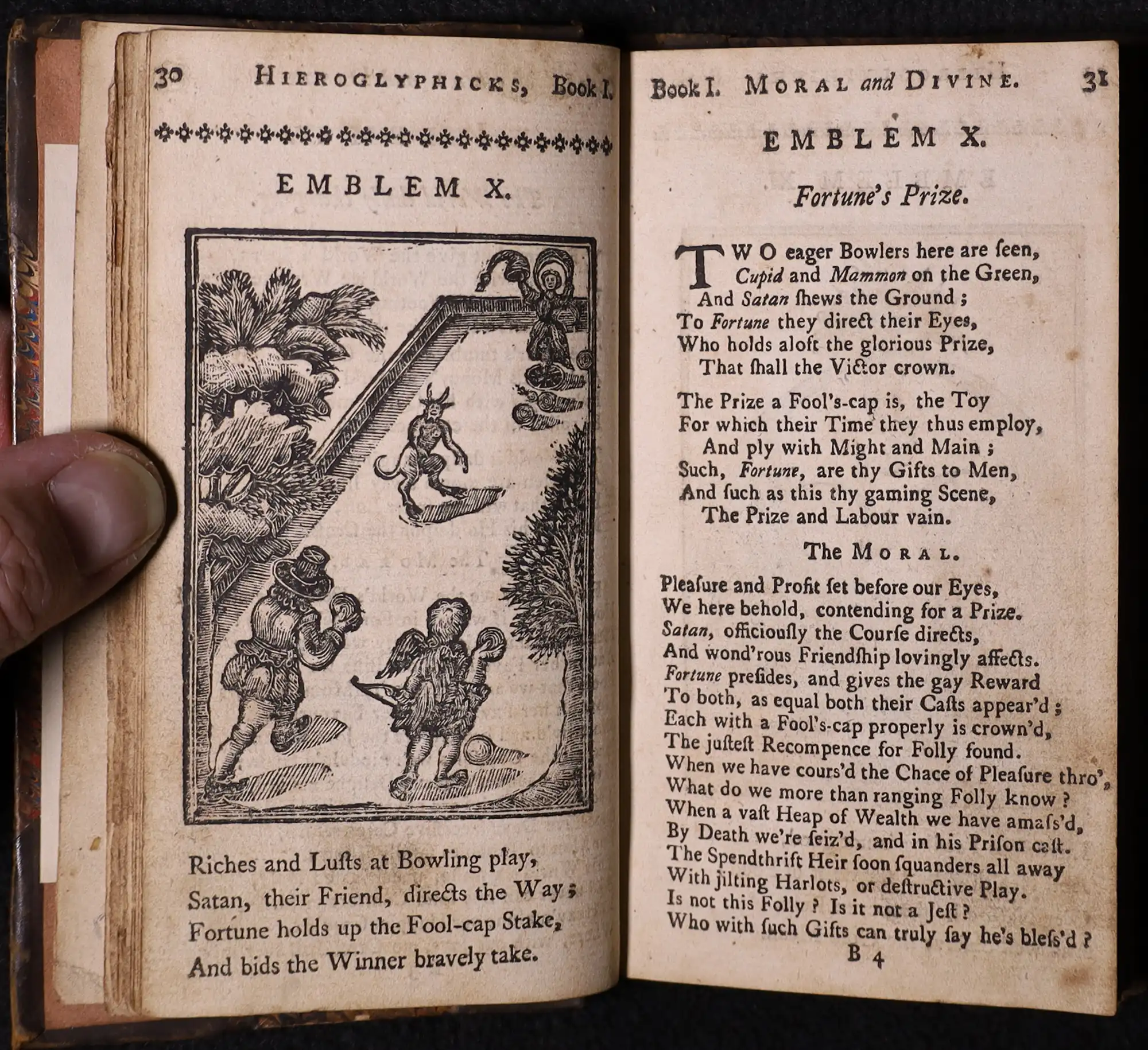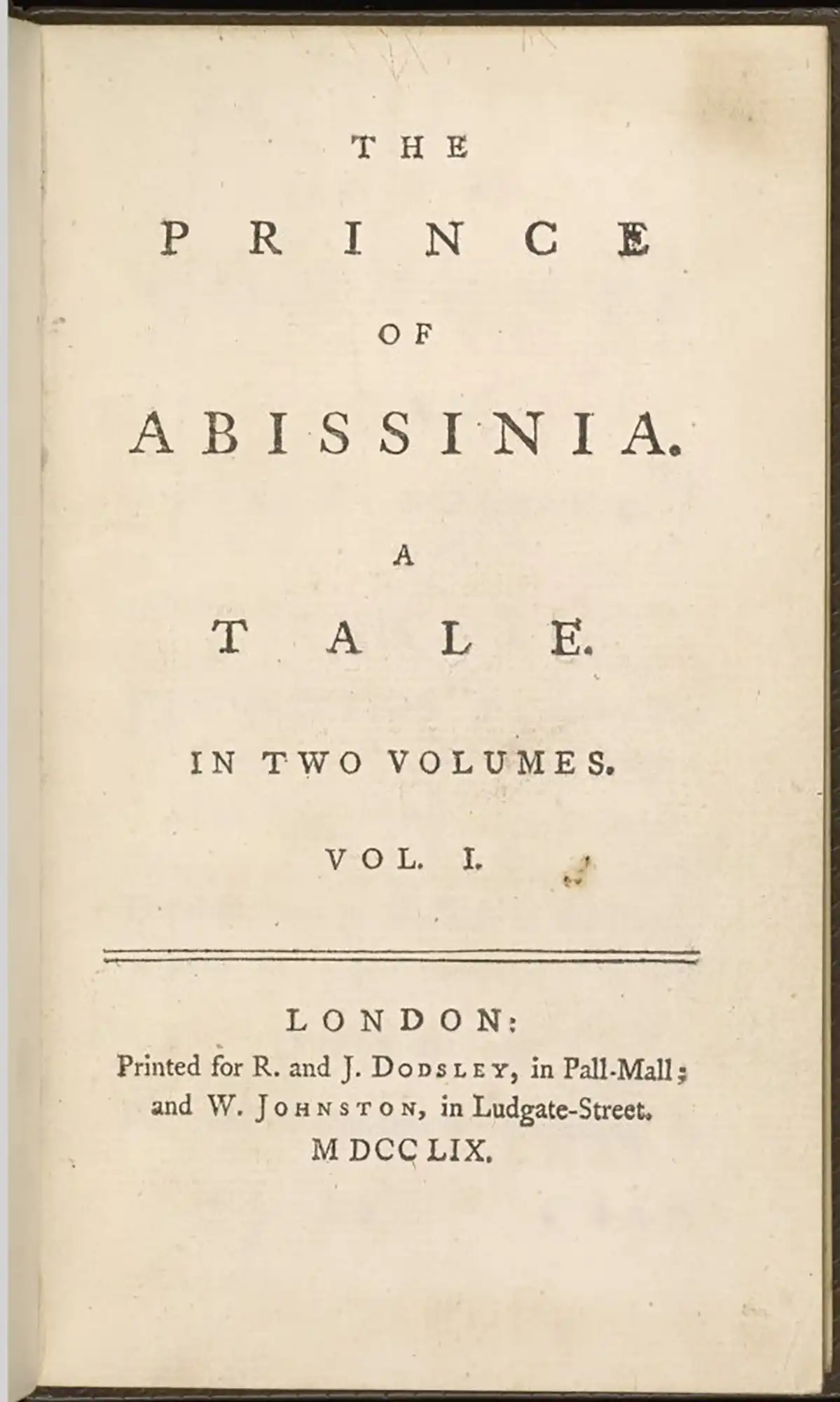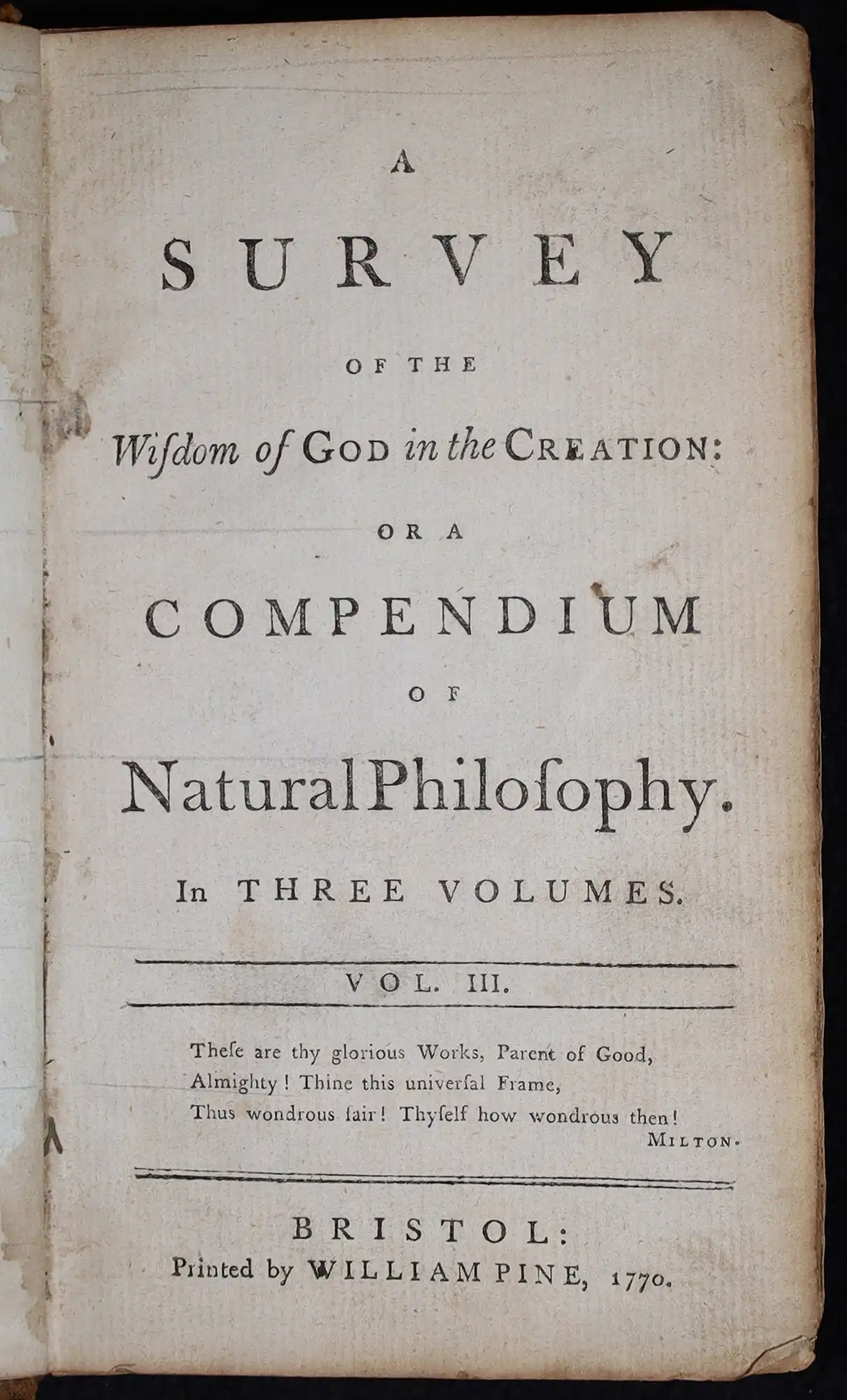Case 18
- “Books of Unusual Interest”

Gentleman bred in his family. The history and life of Admiral Blake. 2nd edition. London: Printed for R. Davis and J. Millan, 1746.
Alfred H. Reed’s collection centred around Bibles as well as certain literary figures such as Charles Dickens. However, he also included other items which he enigmatically termed in his 1948 Deed of Gift ‘books of unusual interest’. The small, eclectic bundle of items listed under this esoteric heading were essentially printed books of the hand-press period which did not fit comfortably within the boundaries of his more well-defined interests.
This case contains a selection of eighteenth-century printed English books from Reed’s collection. All of them reflect personal interests or recurrent themes found throughout his broad collection.
This rare biography of Admiral Robert Blake (1598-1657), a distinguished English military commander of the Commonwealth period, was donated to the Library by Reed soon after his original gift.
A collecting habit of Reed’s was to purchase a book as a complement to an especially valued item in his letters collection. Reed had earlier acquired a 1652 letter written by Admiral Blake on the eve of the First Anglo-Dutch War, which he described as “one of the most important in the Library’s collection” (Rare books and manuscripts, p. 32).

Gentleman bred in his family. The history and life of Admiral Blake. 2nd edition. London: Printed for R. Davis and J. Millan, 1746.
Open image in new window

Francis Quarles. Emblems and hieroglyphicks on a great variety of subjects, moral and divine. London: Printed for M. Cooper ... W. Reeve ... and C. Sympson ..., 1753.
The best-known work by English poet Francis Quarles (1592-1644), the Emblemes was first published in 1635 and was immensely popular with readers despite years of cold reception from critics – including Alexander Pope who alludes to the work in The Dunciad. Known for its grotesque illustrations, this work entails paraphrases of scripture, expressed in ornate, metaphorical language.
It is one of a small number of books in Reed’s collection on the topic of scripture represented through emblematical figures. This copy was one of several books given by Reed to his Mornington neighbours the Gunn family. It was donated to the Dunedin Public Library in 2020.

Francis Quarles. Emblems and hieroglyphicks on a great variety of subjects, moral and divine. London: Printed for M. Cooper ... W. Reeve ... and C. Sympson ..., 1753.
Open image in new window

Samuel Johnson. The Prince of Abissinia: a tale. 1st edition. London: R. and J. Dodsley; and W. Johnston, 1759. Vol. 1 of 2 displayed.
Reed’s primary literary interest was Dickens, but he was also drawn to Samuel Johnson (1709-1784) for his literary merit, personality and no doubt his piety. He began collecting Johnsoniana about the end of the First World War, gathering not just books, but a wealth of manuscript material, chiefly autograph letters.
The assortment of ‘books of unusual interest’ that formed part of Reed’s 1948 donation included a small number of books by Johnson. These however soon grew in numbers into a discrete Reed Johnson Collection. Numerous first editions were acquired, including this first edition of Rasselas.

Samuel Johnson. The Prince of Abissinia: a tale. 1st edition. London: R. and J. Dodsley; and W. Johnston, 1759. Vol. 1 of 2 displayed.
Open image in new window

John Wesley. A survey of the wisdom of God in the creation: or a compendium of natural philosophy. Bristol: printed by William Pine, 1770. Vol. 3 of 3 displayed.
As a devout Methodist, Reed was undoubtedly delighted to add to his collection a contemporary theological work by the founder of his chosen denomination, John Wesley (1703-91). In the early 1950s, Reed had also acquired two autograph letters, one by John and the other by his brother Charles Wesley (1707-88), which Reed proudly framed, embellished with descriptive details in his calligraphic hand.
A survey of the wisdom of God in the creation was first published in two volumes in 1763, with the third part (displayed here) appearing in 1770. It is an example of eighteenth century English regional printing from Bristol, where many of Wesley’s sermons and theological works were first printed by William Pine (1739?-1803), founder of the Bristol Gazette newspaper.

John Wesley. A survey of the wisdom of God in the creation: or a compendium of natural philosophy. Bristol: printed by William Pine, 1770. Vol. 3 of 3 displayed.
Open image in new window



